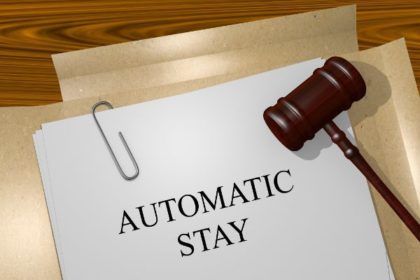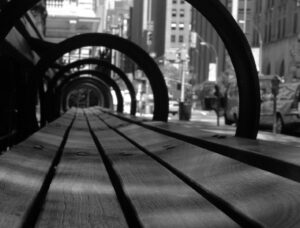People work their entire lives to build the financial stability and security to give them peace of mind and achieve their goals. The road to attaining those  goals is rarely smooth and straight, and it is common for people to have one or more significant financial stumbling blocks on the way. Filing bankruptcy is one option to help you clear those stumbling blocks and get your finances back on track. One of the important tools that will be employed during your bankruptcy is called the “automatic stay.”
goals is rarely smooth and straight, and it is common for people to have one or more significant financial stumbling blocks on the way. Filing bankruptcy is one option to help you clear those stumbling blocks and get your finances back on track. One of the important tools that will be employed during your bankruptcy is called the “automatic stay.”
The automatic stay means that when you have filed your petition for bankruptcy, attempts by creditors to collect on debts will automatically be halted. This includes existing law suits and wage garnishments. Creditors can face stiff penalties for ignoring the stay and attempting to continue to collect on the debt. The debtor’s attorney can file a motion for contempt in the bankruptcy court and the creditor could be ordered to pay attorney fees. The creditor will be required to return any funds obtained in violation of the automatic stay, and if their continued harassment of the debtor is found to be willful, they could also be required to pay punitive damages. If a creditor has repossessed a car or taken other action to change property titles, the court can reverse those transactions. One of the most common examples is that if your car is repossessed in violation of an automatic stay, the creditor can be ordered to return the vehicle. Any change in real estate or business ownership documents would also need to be reserved. Keep in mind that there are several actions that could violate an automatic stay, including trying to move forward with an existing law suit, filing a new law suit, or even just writing letters and making phone calls in an attempt to collect the debt.
There are some exceptions to the protections offered by the automatic stay. Paternity actions, collecting child support, and collecting spousal support are some of the most notable and common examples. This means that a person cannot take advantage of the automatic stay as a way to stall a support case and dodge financial responsibility. In some cases, landlords may able to continue to move forward with their eviction action if they have already obtained a judgment of possession before the case is filed. There are some limited circumstances wherein the landlord may even file a new action during the bankruptcy case, such as endangerment to the property as a result of illegal drug use on the premises.
Automatic stays usually last for the entirety of your case, unless you had another bankruptcy dismissed before its completion in the last year. In addition, a creditor can ask the automatic stay be lifted. In order to have the stay lifted such that they can continue to pursue the debt, the creditor will have to get a court order from the judge, which will only be granted for good cause. The good cause must be something more than just wanting to get paid faster.
We have extensive experience with estate planning. Call us today at (320) 299-4249 and let us help you.






























